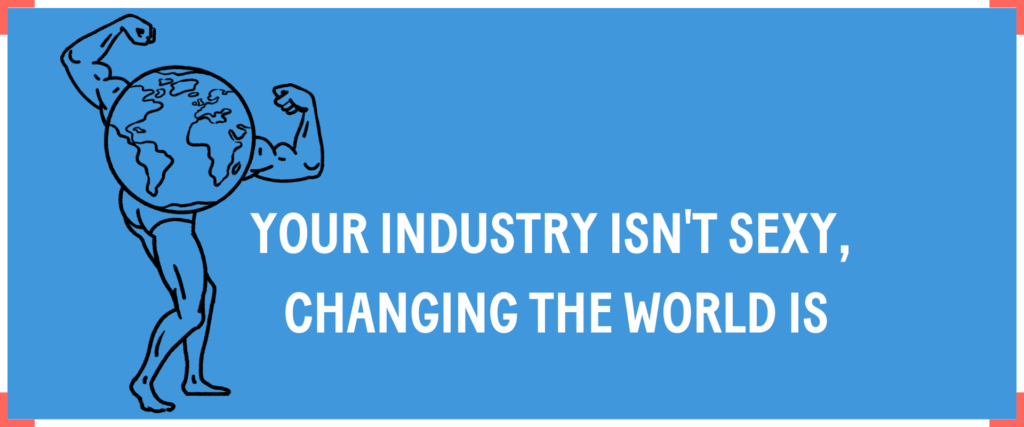Article by Richard Johnson, author of Mission Lit

The main objective of researching and writing Mission Lit was to understand how some companies were able to turn an ambitious mission (or purpose) to enrich the world into a competitive advantage. A secret sauce which other companies, more focused on extracting value than creating it, couldn’t replicate. My methodology was simple: speak to as many business leaders as possible who seemed to have the recipe for this secret sauce down to a tee, and had used it to great effect to challenge their industry’s incumbent leaders.
The difficult part was going to be poring through the interviews and trying to find the recurring ingredients which emerged. Except in some cases it really didn’t take much digging. The most conspicuous of all, was that when asked what gave these companies an advantage, every single person I interviewed said the number one thing was people. In many ways, the book could have been called It’s People, Stupid. At the best companies teams worked smarter, more creatively, more collaboratively, more restlessly, and more autonomously. It quickly became apparent that all great leaders are obsessed with people - after all it is the people that give you superior products, superior marketing strategies, and superior ways of working.
Ways of working is a loose, non technical term, but it’s at the core of the Mission Lit secret sauce I uncovered. In trying to understand exactly how these companies developed superior ways of working, what I discovered was not a prescriptive approach for how to structure your organisation and operations, but an underlying leadership philosophy. This philosophy was best understood in some of the companies in the more prosaic industries I looked at, for example banking and insurance. Their leaders understood that their industry might not be sexy, but creating change is.
Companies such as Monzo and Lemonade have both transformed their industries by giving passionate, very often young, talented people the opportunity to fundamentally change how something was done. Some of the best minds of their generation - who almost certainly never grew up dreaming of being bankers or insurers - working in banking and insurance, and loving it.
Essentially we’re talking about attracting and engaging the best talent, something all businesses recognise as important. But the point I really want to make is that this is not about perks and startup culture, but fundamentally doing things in different ways. Free bagels, office dogs and table tennis are much appreciated, but how you attract the right people, and the consequences of their work, all comes down to whether leadership genuinely gives them permission to do things differently, to really change things.
In the book I look at how the insurance startup Lemonade is fundamentally wired differently to other legacy insurers. They explained to me, “Lemonade thinks like a tech company and not an insurance company, even though we are a fully licensed insurer. There are things that we do – especially the agility with which we do things – that traditional insurance companies will have a hard time, if not impossible time, catching up with”. What’s allowed them to do this is they have convinced top tech talent to join them with the promise of turning insurance from a necessary nuisance/evil in society to a force for good, what’s more when they joined, they let them go ahead and make it happen. `
Lemonade organizes in squad structures, more similar to the inner workings of Spotify than a normal insurance company. The result? Lemonade took only 4.25 years to reach a million customers. For reference, US insurance giant State Farm took 22 years.

When researching Mission Lit one of the companies I really wanted to interview was Bulb Energy. They were a B Corp, tech-foward and championing a green energy revolution - what’s more they were the fastest growing private company in the UK. I was convinced they were the perfect case study, the perfect proof point that this “secret sauce” I’m talking about can really culminate in an untouchable advantage.
I never did get the interview, and in retrospect, knowing they did build a castle, but it was made of sand, I am quite relieved they aren’t in the book. But they are still a perfect case study, it’s now just a cautionary one.
So what went wrong with Bulb? Clearly a lot of things, but in terms of how they used the leadership philosophy explored in this blog let’s take a look. The company built a team of “Bulberinos”, a young, smart, passionate workforce all inspired by Bulb’s mission to make energy greener and more affordable. However, many of these Bulberinos soon became disillusioned, and reports of a toxic work culture followed. They hired people who bought into the mission to do generalist roles, for which they were probably overqualified to do. They were providing customer service, developing slick looking tech and selling cheap energy, but what were they really changing?
For example, it turns out their promise of 100% clean energy never quite stacked up, with analysis finding only 5% of the green power they provided to homes was sourced directly from renewable energy projects, and never invested in their own generating assets, such as wind and solar. And the tech they developed was never the true gamechanger being developed by other industry innovators such as Octopus. For changing the world to be sexy it actually has to in some way change the world
There are so many entrepreneurs in so many industries who can take advantage of this approach to leadership and gain a huge advantage in how they run their companies. They just need to remember you only get sexy if you really make change.
If you have enjoyed this article please do check out the full version of Mission Lit